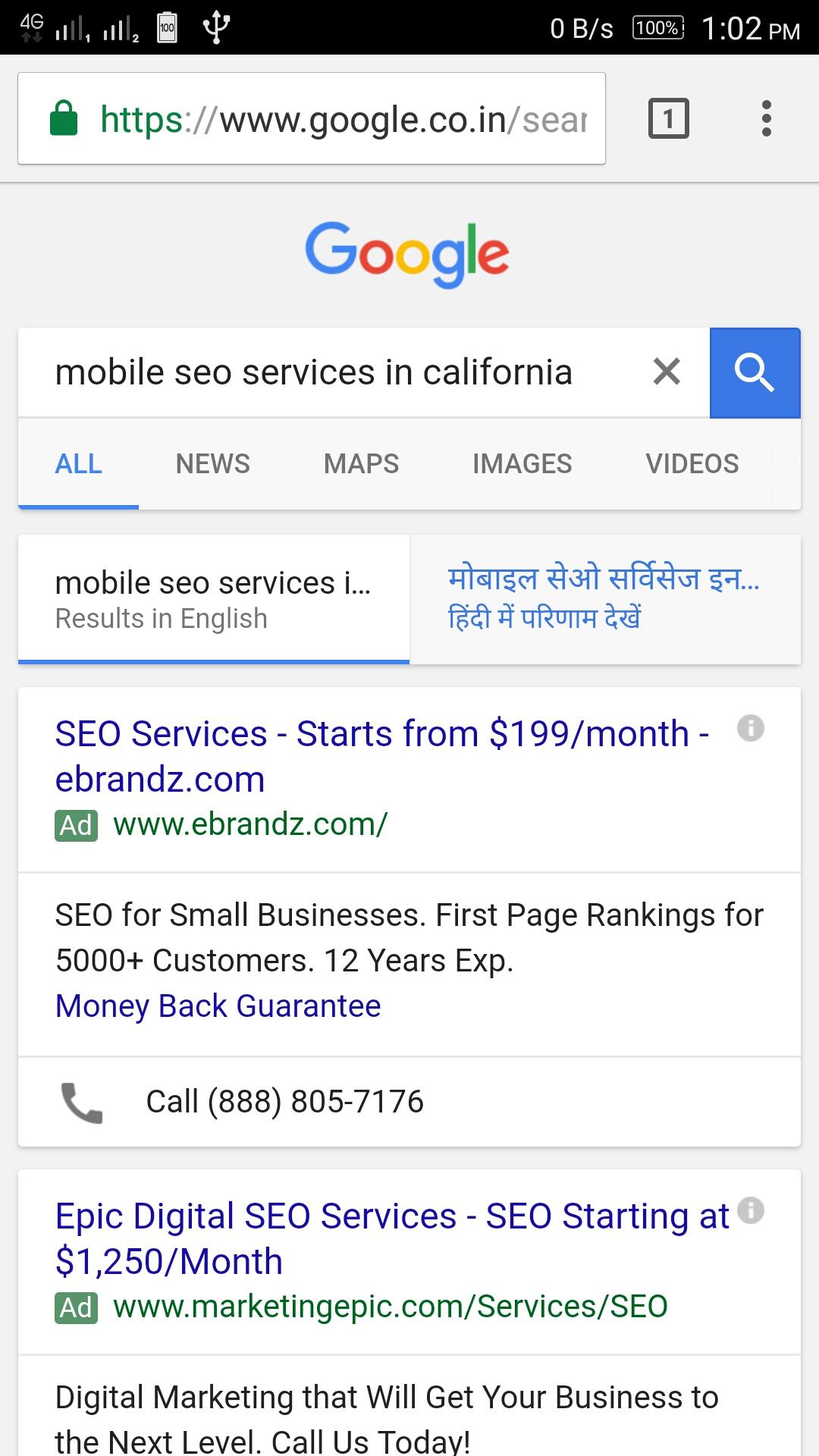
Google is a pioneering name in the field of search engine optimization and is leading the domain like a leader since Internet came into existence. It is constantly updating its SEO strategies and algorithms to make search results more refined, result oriented and real-time in nature. It has not been a long time enough since Google made Penguin core algorithm as a real time update to improve the content and link quality on a site.
Taking the battle towards non authentic and irrelevant content a step higher, Google is again back with its latest Mobile-first index strategy. The search engine giant first talked about this changed search engine optimization strategy on 4th November, 2016 under its official blog. With this new start, Google is giving enough hints to websites to start adopting a mobile friendly site and put emphasis on mobile search engine optimization results.
If you are still unable to make the most out of your website by employing the expertise of an effective web development company, it is time to actually rethink. If your site is not having a good presence on search engine result pages (SERPs), it is bound to affect your business in a big way. To save your site from the ill effects of this latest mobile-first indexing strategy, here are the few tips that can help you in this scenario.
1. Don’t ignore the speed of your website-

Website speed is an important ranking factor for Google while deciding the performance of a site on its search engine result pages (SERPs). According to the statement of Maile Ohye, Tech Lead of the Developer Programs at Google, “two seconds is the threshold for e-commerce website acceptability. At Google, we aim for under a half-second.” Don’t test the patience of your mobile users while surfing a website and work towards optimizing the performance of your mobile website. Some of the steps that can help in improving the loading speed of your mobile site are as follows:
– Always use optimized images and videos in your site content. You can take the help of compression tools like Gzip along with the A/B testing eCommerce extensions for your mobile site.
– Minify the coding of your website in order to remove unnecessary clutter and improve loading time.
– Take steps to reduce site redirects as frequent redirection can increase the loading time, which can affect user experience.
Besides, following these quick tips for website speed optimization, mobile site owners need to take assistance from an effective SEO services company to achieve higher online visibility and search engine rankings.
2. Don’t block CSS, JavaScript or images-

Programming and website development has changed a lot since the days of vacuum tubes, punched cards and transistors. There are elements like CSS, JavaScript and other components that were initially blocked as they consumed more time in loading, which ultimately slows down a website. However, with more powerful processors and hardware requirement, smart phones are giving a tough fight to desktops in terms of performance.
So, it is important to include CSS3, JavaScript and other components in your mobile site for its effective performance and loading time. Get involved with a reputed web development company that can provide you an engaging and faster performing mobile website.
3. Put emphasis on mobile site design-

Search engine optimization is not just about keyword stuffing and targeting but it has evolved a lot more since then. Website design and navigation do make an impact while a site is indexed by the search engine bots of Google. You need to create an engaging mobile specific website by utilizing effective mobile web development services. Work towards improving the mobile design and navigation for getting better rankings on mobile search engine result pages. Below are some of the tips that can help in optimizing the design and performance of your mobile site.
– Avoid using flash plugins for your mobile site as they are too heavy to load which slows down a website. You could instead utilize HTML5, CSS3 and Java elements for improving your mobile site design.
– Make judicious use of pop-ups in your mobile site as they cover up the most of the mobile screen and causes a problem in performing an earlier task by the mobile user. These pop-up ads also cause higher bounce rates that result in lower customer engagement and search engine rankings.
– Ensure that your mobile site is responsive towards thumb and finger gestures of your mobile users. It is important to have a mobile site which is finger and thumb friendly for proper site navigation.
4. Focus on On-page optimization- Mobile search engine results are not just dependent on mobile keywords but are also dependent on a wide range of things. Meta titles, descriptions, and site maps are some of the crucial elements of the On-page search engine optimization techniques that need to be handled effectively. Use a short, keyword specific and engaging meta titles and descriptions on your mobile site for better indexing.
These meta elements help GoogleBots to index your mobile site faster and help in improving the click-through rates as well as mobile search engine rankings.
5. Start utilizing local SEO for your mobile site-

The search engine optimization strategy in a mobile site is completely different than a desktop site. A user who is making a search on a mobile device often writes a search engine query based on a particular location or area. Further, Google also laid stress on the use of local search algorithm with the help of its recent Possum update. In the same Google report, it was shown that “50 percent of consumers who conducted a local search on their smartphone visited a store within a day, and 34 percent who searched on a computer/tablet did the same.” In this way, local businesses can gain much through this mobile-first index update. To make the best possible use of local search engine optimization strategy on your mobile site, here are the elements to be included.
– City and state in the title tag.
– City and state in the H1 heading.
– City and state in the URL.
– City and state in content.
– City and state in the alt tag.
– City and state in the meta description.
– Business name, phone and address of the company.
Final words of advice
With all the recent updates of Google, it is clearly evident that the search engine giant is giving adequate emphasis on the mobile device users and not just on the desktop or laptop users. It is time to pull up your socks further in order to save your site from the penalties occurred due to this upcoming mobile-first indexing search engine optimization strategy. Make your website more accessible and user-friendly for your mobile users for optimizing your online presence and visibility.








